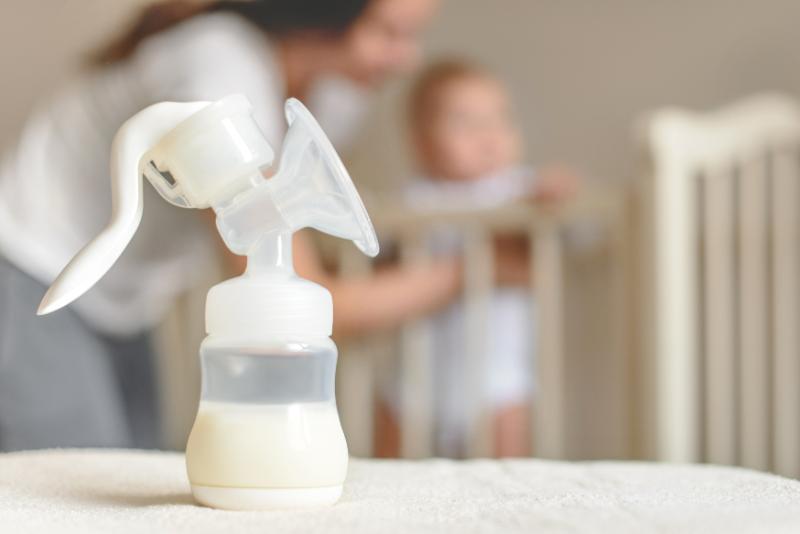Don’t delay seeking help from your pediatrician if you notice signs of infant feeding problems that do not improve with at-home techniques and intervention. The early months of your child’s life are pivotal, and ensuring your baby receives the essential nutrients is critical to ensure proper growth and development.
Infant feeding issues will not resolve themselves on their own or with time. Undernutrition can lead to lasting physical and cognitive challenges for your child. If your child is experiencing infant feeding problems, it is crucial to get professional help immediately.
Feeding issues in your baby may manifest as excessive or insufficient intake. Paying attention to these signs is essential since timely intervention always leads to better outcomes.
Some signs that could let you know if your baby is feeding too much include the following:
- If bottle-fed, the baby consumes more than 4 to 6 ounces per intake
- Your baby vomits most or all the food after a complete feeding
- Stools are very watery and loose
Some signs that could let you know if your baby is feeding insufficiently include the following:
- If breastfed, your baby stops feeding in less than ten minutes
- Diapers need less than four changes per day
- Your baby sleeps through the night without the need to feed
- You notice less urination and signs of dehydration
- Infrequent and hard stools
- Your baby appears to search for something to suck shortly after feeding
- The color of your baby’s skin turns a yellowish tone
Allergies or digestive issues in your baby may manifest as:
- Vomiting most or all food after a complete feeding
- Loose and watery stools
- Blood around the stool
- Skin rash
Poor feeding in a newborn baby is often caused by common ailments like colds, teething, or mild infections. However, some serious issues could also be responsible for these feeding difficulties. It's crucial to be aware of such issues and seek medical attention promptly.
Temporary illnesses could cause feeding issues that may need minimum medical intervention. Common ailments that cause feeding problems in babies include:
- Diarrhea
- Ear infections
- Coughs and colds
- Teething
Double-check with a pediatrician if you have doubts or concerns regarding your child's well-being. Assuming your baby has a minor illness when there’s a serious underlying condition could be detrimental to your baby’s health.
Serious conditions that may cause feeding issues need prompt medical attention to avoid further complications. This may include:
- Low birth weight
- Specific traumatic injuries like cerebral palsy
- Structural abnormalities, such as a cleft palate
- Acid reflux or other stomach problems
- Lung or respiratory problems
- Nervous system or muscular problems
- Developmental delays or disabilities, such as autism
Solving feeding issues in your baby depends on the root cause. For example, poor feeding caused by an infection usually stops once the infection is treated or subsides.
Treatment for feeding problems may range from at-home solutions with the guidance of your pediatrician to requiring professional medical care if the situation warrants it.
Severe cases of poor feeding need immediate medical attention. However, other underlying causes can be addressed at home with guidance from a pediatrician.
If your baby is breastfeeding, avoid:
- Medications that could interfere with breast milk
- Applying lotions or skin oil to your breasts
- High levels of stress since this could make your milk taste differently
Although breastfeeding is recommended by doctors, not all babies have successful feedings with this method. If your baby doesn’t seem to improve despite repeated attempts to breastfeed, try talking to your doctor about formula feeding.
The most important thing is to ensure your baby gets adequate nutrition, regardless of the method used.
Depending on the underlying cause, specialized treatment for feeding problems may include:
- Lactation consultation to address breastfeeding problems
- Gastrointestinal evaluations to rule out digestive disorders
- Medication for medical conditions like acid reflux or allergies
- Feeding tubes for severe cases where a baby is unable to feed orally
Feeding problems in newborns are a severe concern when they are accompanied by other symptoms. Seek immediate medical attention if your baby is showing any of the following signs:
- Fever of over 100°F (37.8°C)
- Vomiting after every feeding
- Vomiting blood
- Coughing with breathing difficulties
- High-pitched crying
- Bloody stool
- Becomes unresponsive to touch
Parenthood is an exciting journey full of challenges. At Robertson Pediatrics, we understand that it is worrying when your baby is eating poorly.
Try to remember that stress can worsen and interfere with your attempts to feed your baby. Strategies such as deep breathing exercises and practicing mindfulness meditation can help reduce your stress levels.
While managing your emotions won't resolve the root causes of poor feeding, it will help create a more conducive environment for effectively addressing these challenges.
At Robertson Pediatrics, we specialize in helping parents address and overcome infant feeding problems. Our team provides expert guidance and support for your baby's healthy development.
We ensure your baby receives the best nurturing care with our newborn care services. We offer same-day visits in our clinic located in the heart of Beverly Hills. For appointments, call us at 310-659-8687 or contact us online.


